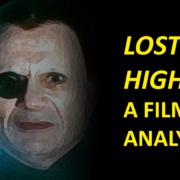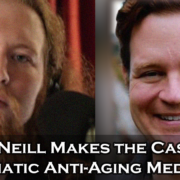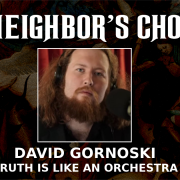Salvation Through Creativity
Man, the microcosm is responsible for the whole structure of nature and whatever takes place in man affects the whole of nature. Man gives life and spirit to nature, through his creative freedom, and he kills or fetters it through his own servitude and his fall into material necessity.
–Nikolai Berdyaev1
In the summer of 1785, a Japanese apprentice craftsman by the name of Ukita Kōkichi attempted to fly his handmade glider.2 According to some, Kōkichi succeeded in flying fifty meters across the Asahi River. As important as this early attempt at man-made flight is what shouldn’t be overlooked is the hostile reaction that Kōkichi drew from the governing lords of his hometown who decided that the inventor was a public nuisance and had to be banished.
Why was Kōkichi banished for attempting to revolutionize the sphere of transportation? A naive observer of history might conclude that the persecution of inventors is the result of primitive man feeling threatened by scientific progress. Such a conclusion, which is typical of the naive empiricist, is easily dismantled when we see throughout history that primitive man has already made scientific progress, especially in the fields of agriculture and warfare, before the philosophy of secular enlightenment took hold of our collective psyche.
No, it is not mere progress that threatened primitive societies. Inventors like Kōkichi were expelled because such men threatened to redefine the meaning of the word “antidote.” In past civilizations, the word antidote, which is derived from the Greek pharmakos, meant the expulsion or sacrifice of a human victim in order to cleanse society.3 Pharmakos, in essence, was the use of evil in combating evil. As a result of this philosophy, human beings did not have voluntary discourse and, therefore, they did not have the spirit of scientific inquiry which was aimed at the betterment of mankind.
Another way to make sense of this trajectory is to recognize that the technological and scientific progress of primitive civilizations never sought to eliminate pain and suffering on a universal basis quite like modern society does. Modern civilization, imperfect as it, is the natural outpouring of a Calvary-infected mass consciousness that has gradually deepened over history.
“We didn’t stop burning witches because we had invented science; we invented science because we stopped burning witches.”
–René Girard4
The elevation of humanity, and more precisely the human person, that comes from Christ’s example in the New Testament gives way to a radical and, oftentimes, violent call for equality, fairness, and harmony.
It is because Christ healed the masses that we clamor for healthcare as a human right. It is because Christ healed the blind and the leper, we demand respect for persons with disabilities. It is because of Christ’s conversation with a marginalized Samaritan woman that we are told to #believeallwomen. Because Christ taught us to love the otherized foreigner as our neighbor, we are met with demands to accommodate “Dreamers.”
We can see here how Christ has opened a Pandora’s box of mimetic conflict in human history. Christ says:
“Think not that I am come to send peace on Earth: I came not to send peace, but a sword.”
–Matthew 10:34
In the face of radical demands for social change, we see the rise of a powerful reactionary movement that attempts to overtake the Left in terms of using violence to achieve all ends. This is why the postmodern ultra-liberal movement for gender and race rights is met with a similarly loud and aggressive chorus for isolation from, indifference, and hostility towards the otherized. In other words, a desire for inclusiveness is met with a desire for exclusivity.
The “culture war” of Left vs. Right results in cultural stagnation. No real progress for the betterment of our fellow human beings follows and with this realization comes cynicism and a burning desire to see every single thing burn and dissolve into ashes. Those who are able to resist nihilism are tempted to escape culture altogether and isolate themselves in the tradition of asceticism. They take the path of fundamentalism whilst repeatedly calling for repentance and penitence.
The path of asceticism certainly has its time-tested merits and it often leads to the forging of larger-than-life saints whom we can emulate in an overtly religious manner. But we should mind the incompleteness of this path with regards to the emulation of the resurrected Christ, the partaking of God’s nature as described by the apostle Paul, and the complete salvation of the cosmos.
The path of asceticism alone focuses too much on repentance and obedience. Berdyaev writes:
Man is called not merely to wait and have a presentiment but to act and to create. Man must move out of a religious-passive and receptive condition into one of religious activity and creativeness.5
He continues:
The cult of saintliness should be complimented by the cult of genius, for the way of genius involves sacrificial heroism and the creative ecstasy of genius is no less religious than the ecstasy of sainthood. Transition into a creative religious epoch should first of all bring a recognition of the religious nature of genius. Not saintliness alone, but genius also, is a way. And if genius is not given to all, neither is sainthood. But the potentiality of genius, like the potentiality of holiness, lies in every image and likeness of God. The Creator foreordained man for genius.6
What is this “cult of genius” that Berdyaev is speaking of? He describes:
The creativeness of a genius is a sort of self-sacrifice… Genius is another kind of sainthood, but it can be recognized and canonized only in the revelation of creativeness. Genius is the sainthood of daring rather than obedience.7
What is creativity? Is it just another piece of art? Is it a new fashion trend or is it another scientific discovery? Creativity can never be boxed into categories of necessity. True creativity must always be that which prepares the cosmos for the return of Christ and the coming of His Kingdom. This is not utopian thinking, this is the unfolding of revelation.
The filmmaker Andrei Tarkovsky visualized this perfectly in his 1966 film Andrei Rublev. The titular character of the film is an iconographer who questions his calling in a world filled with violence and oppression. One day, he witnesses countless innocents being butchered inside a church by an aristocratic tyrant. In the massacre, Rublev manages to save a woman from getting raped, but he is only able to do this by murdering the would-be rapist.
The fact that even the rescuing of innocents must involve the shedding of blood deeply unsettles the sincere iconographer. He decides to give up painting and takes a vow of silence. Years later, he witnesses the tireless construction of a church bell led by a boy named Boriska. The construction is successful and the first chimes of the bell send the entire town erupting with joy.
Rublev is impressed by the town’s reaction, but he sees an exhausted Boriska sobbing alone in the mud. Rublev comforts the boy and breaks his vow of silence with a promise that the two will begin a partnership of creativity. “You’ll cast bells,” Rublev says to the boy, “I’ll paint icons.”
Tarkovsky’s Rublev does not contain the complete story as is implied by the protagonist’s promise at the climax. Tarkovsky, however, paints a rich portrait of the first frame of the beginning of what Berdyaev called “the epoch of religious creativity.” Rublev’s icon painting is a remnant of the old asceticism and Boriska’s bell construction is a symbolism of modern-day technological and industrialized creativity. The two must combine whilst rescuing and inspiring each other and forge the path towards God’s kingdom.
In this new creative epoch, the creative genius will no longer be expelled or sacrificed. The antidote will no longer involve the shedding of blood and the coercion of the masses with top-down tyranny. Necessity will no longer rule over us. Mankind, in complete harmony with God’s energies, will elevate the human person and reclaim the likeness of God. This will be achieved in freedom and self-sacrificing creativity.
What the future will look like, no one knows. But we can take comfort in the fact that the Creator has foreseen everything and, therefore, has endowed us with the gift of creativity, thus enabling us to run towards Him as He patiently awaits us on the horizon of time.
…
-
- Nikolai Berdyaev, The Meaning of the Creative Act
- https://en.wikipedia.org/wiki/Ukita_Kōkichi
- https://en.wikipedia.org/wiki/Pharmakos
- René Girard, Things Hidden Since the Foundation of the World
- Berdyaev, The Meaning of the Creative Act
- Ibid.
- Ibid.












Leave a Reply
Want to join the discussion?Feel free to contribute!